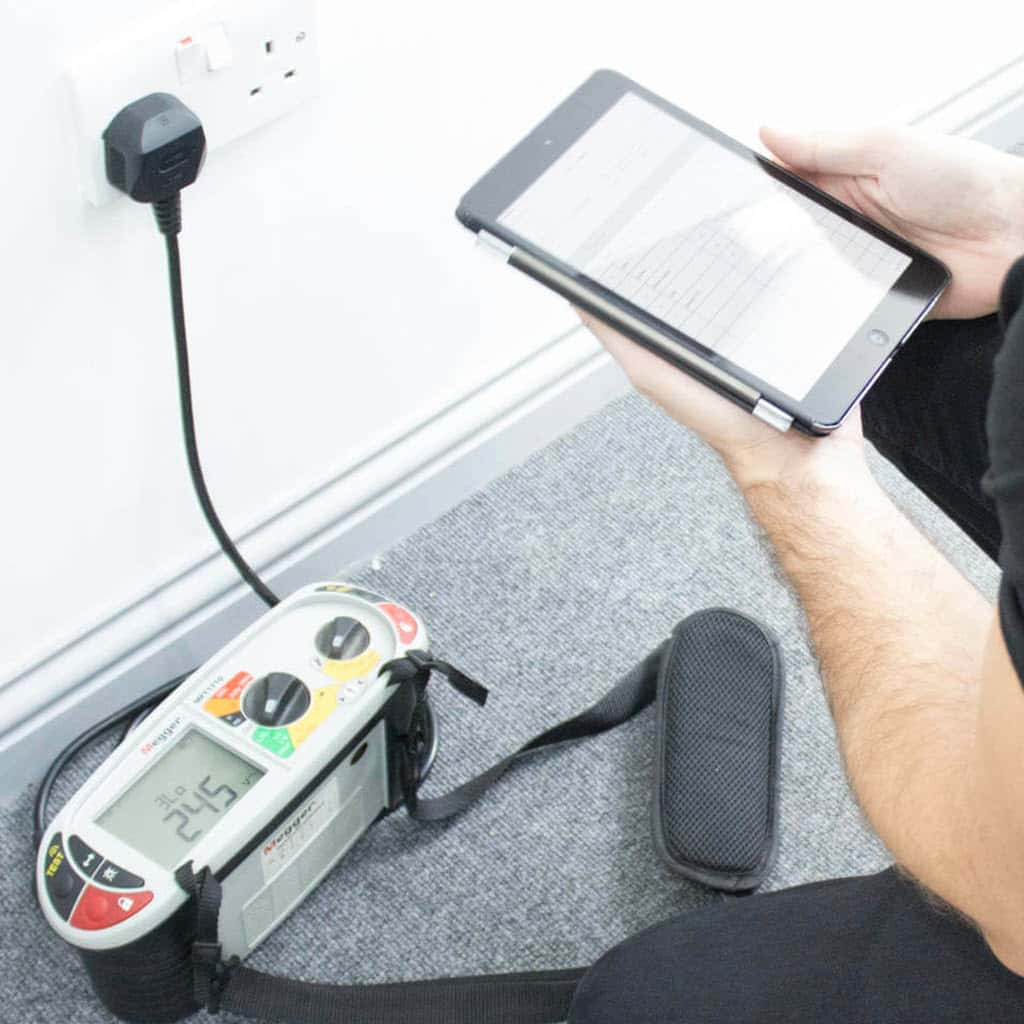Most people associate electrical installation condition reports (EICRs) with rented properties. However, an EICR is equally significant for homeowners, particularly when you are selling your property, buying a new one, or even if you’re an estate agent or solicitor advising clients.
In this article, we explore why EICRs are beneficial, and sometimes essential, for all these scenarios.
This page forms part of our EICR guide.
What is an EICR and why do homeowners need it?
An EICR is a formal report that assesses the safety and condition of the electrical installations within a property. It identifies any electrical faults, wear and tear, and ensures that all systems comply with current UK safety standards. As a homeowner, you might not think an EICR is necessary unless you encounter a problem. However, this proactive measure can prevent costly repairs, ensure safety, and provide peace of mind.
If you’re planning renovations, considering a new flooring installation, or thinking of adding new electrical circuits, an EICR can identify if your existing installation can handle these changes. Imagine laying a new floor, only to find out that you need to lift it again for rewiring your home, installing an EV charger or potentially installing a new battery storage system.
An EICR avoids such issues by giving you a clear understanding of your property’s electrical condition before any major work starts.
Selling your home? Why an EICR matters
Selling your property is a big decision, and it’s essential to present your home in the best possible light. One way to ensure a smooth sale is by providing a valid EICR certificate. You might wonder, do I need an EICR to sell my house or is an EICR a legal requirement to sell? The answer is no, it’s not a strict legal requirement, but it is highly recommended.
A valid EICR can be a valuable selling point, giving potential buyers confidence that the property’s electrical systems are safe and compliant. This transparency can prevent disputes during the sale process, especially regarding safety concerns, which could delay or derail a deal.
By having a satisfactory EICR, you eliminate the risk of buyers requesting price reductions or threatening to pull out due to electrical safety concerns.
If you’re wondering, can you sell a property with an unsatisfactory EICR? The answer is yes, but it’s likely to reduce your chances of securing a quick sale or achieving your asking price. An unsatisfactory EICR signals that the property may require immediate electrical work, which can deter potential buyers.
In some cases, buyers might even attempt to use this information to negotiate a lower price, citing the cost of necessary repairs or updates.
Buying a property? Is EICR a legal requirement?
Purchasing a new home is exciting, but it’s important to ensure that the property is safe to move into. An EICR can identify any electrical issues that may not be visible during standard property surveys.
For instance, outdated wiring or damaged cables may require immediate attention. Having a clear understanding of the electrical condition can influence your purchasing decisions, help you plan for any necessary upgrades, and even provide leverage in price negotiations.
For those who intend to renovate a property, obtaining an EICR before buying can save a lot of time and money.
It allows you to factor in the costs of any electrical work needed and gives you the opportunity to start renovations promptly upon moving in.
This foresight helps avoid unexpected delays and ensures that your new home is not only beautiful but also safe and functional.

Why should estate agents recommend EICRs?
As an estate agent, your goal is to facilitate smooth transactions for both sellers and buyers. Recommending an EICR to your clients can be a significant value-add to your service.
For sellers, it shows transparency and builds trust with potential buyers. For buyers, it provides assurance that the property they are interested in is safe and up to current standards.
Suggesting an EICR also highlights your professionalism and commitment to safety. By advising your clients to invest in an EICR, you’re helping them avoid potential pitfalls that could arise during the buying or selling process, making your services stand out in a competitive market.
The role of solicitors in recommending EICRs
Solicitors (obviously) play a crucial role in property transactions, often being the first point of contact for legal advice. Recommending an EICR to your clients not only ensures that you’re providing complete guidance but also helps your clients avoid potential legal disputes down the line.
Electrical issues can be grounds for compensation claims or post-sale complaints if not addressed properly beforehand.
When advising sellers, recommending an EICR can help them avoid post-sale liability, such as claims for electrical faults that may arise within a few days of the new owner moving in.
For buyers, an EICR can prevent them from unknowingly inheriting a property with electrical issues that could be both costly and dangerous.
Making EICRs part of your property journey
Whether you’re a homeowner, seller, buyer, estate agent, or solicitor, EICRs offer a valuable insight into the safety and compliance of a property’s electrical system.
Investing in an EICR provides peace of mind, helps avoid unexpected costs, and ultimately makes the property transaction process smoother for everyone involved.
So, if you’re wondering, do you need an EICR certificate to sell a house? the answer might not be an absolute yes, but it’s a wise step towards ensuring a successful property transaction.
If you have liked this article and found it useful, we would love to hear your comments below.

